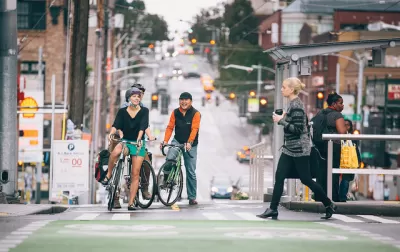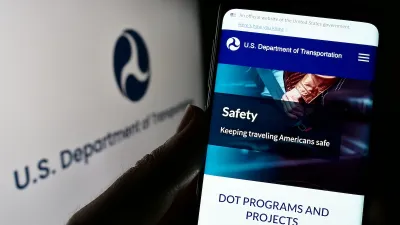Participants in the Local Infrastructure Hub bootcamps have a 40 percent success rate on federal grant applications for transportation, climate, food mitigation, rail, and broadband projects.

Smaller-sized cities are often at a disadvantage competing for billions of dollars in federal grants available largely because of lack of staff, in-house know-how, and other resources, according to a Route Fifty article by Elizabeth Daigneau. Fortunately, an initiative led by the National League of Cities is helping change that dynamic, offering free infrastructure “bootcamps” aimed at better equipping small cities and underserved communities to capture federal funding.
About 30 cities that participated in the Local Infrastructure Hub bootcamps won federal grants in the most recent round of Safe Streets and Roads for All program, Daigneau reports, including $10 million in Bethlehem, Pennsylvania, and $24 million in Dearborn, Michigan. The hub started in 2022 and to date has put 700 cities through its curriculum.
The success rate for grant applicants that participated in a Local Infrastructure Hub bootcamp is 40 percent, compared to an average success rate of 5 percent for applicants of competitive grants in general, according to Robert Blaine, senior executive and director for the National League of Cities' Leadership, Education, Advancement, and Development Center.
The hub’s bootcamps are tied to specific grant programs, with modules mirroring different sections of the grant applications themselves. “The new series of classes will focus on six grant opportunities that address transportation, roadways, electric vehicle infrastructure, climate resilience and clean water improvements,” writes Daigneau. Registration for the third round of bootcamps opened last month.
FULL STORY: Infrastructure ‘bootcamps’ help smaller cities win federal grants

Study: Maui’s Plan to Convert Vacation Rentals to Long-Term Housing Could Cause Nearly $1 Billion Economic Loss
The plan would reduce visitor accommodation by 25,% resulting in 1,900 jobs lost.

Alabama: Trump Terminates Settlements for Black Communities Harmed By Raw Sewage
Trump deemed the landmark civil rights agreement “illegal DEI and environmental justice policy.”

Why Should We Subsidize Public Transportation?
Many public transit agencies face financial stress due to rising costs, declining fare revenue, and declining subsidies. Transit advocates must provide a strong business case for increasing public transit funding.

Paris Bike Boom Leads to Steep Drop in Air Pollution
The French city’s air quality has improved dramatically in the past 20 years, coinciding with a growth in cycling.

Why Housing Costs More to Build in California Than in Texas
Hard costs like labor and materials combined with ‘soft’ costs such as permitting make building in the San Francisco Bay Area almost three times as costly as in Texas cities.

San Diego County Sees a Rise in Urban Coyotes
San Diego County experiences a rise in urban coyotes, as sightings become prevalent throughout its urban neighbourhoods and surrounding areas.
Urban Design for Planners 1: Software Tools
This six-course series explores essential urban design concepts using open source software and equips planners with the tools they need to participate fully in the urban design process.
Planning for Universal Design
Learn the tools for implementing Universal Design in planning regulations.
Smith Gee Studio
Alamo Area Metropolitan Planning Organization
City of Santa Clarita
Institute for Housing and Urban Development Studies (IHS)
City of Grandview
Harvard GSD Executive Education
Toledo-Lucas County Plan Commissions
Salt Lake City
NYU Wagner Graduate School of Public Service





























